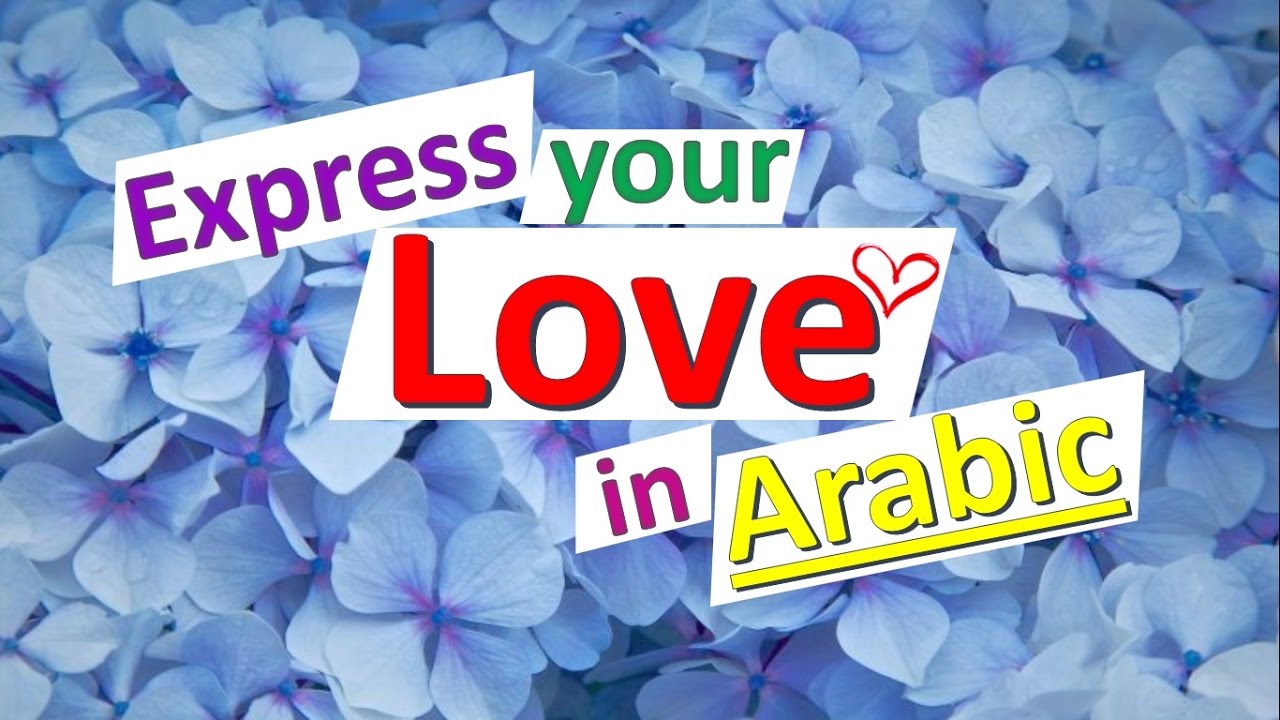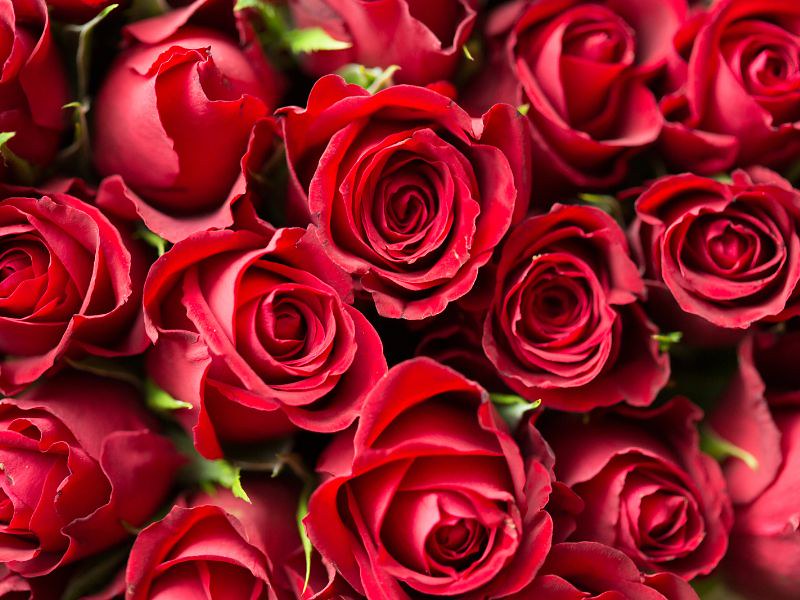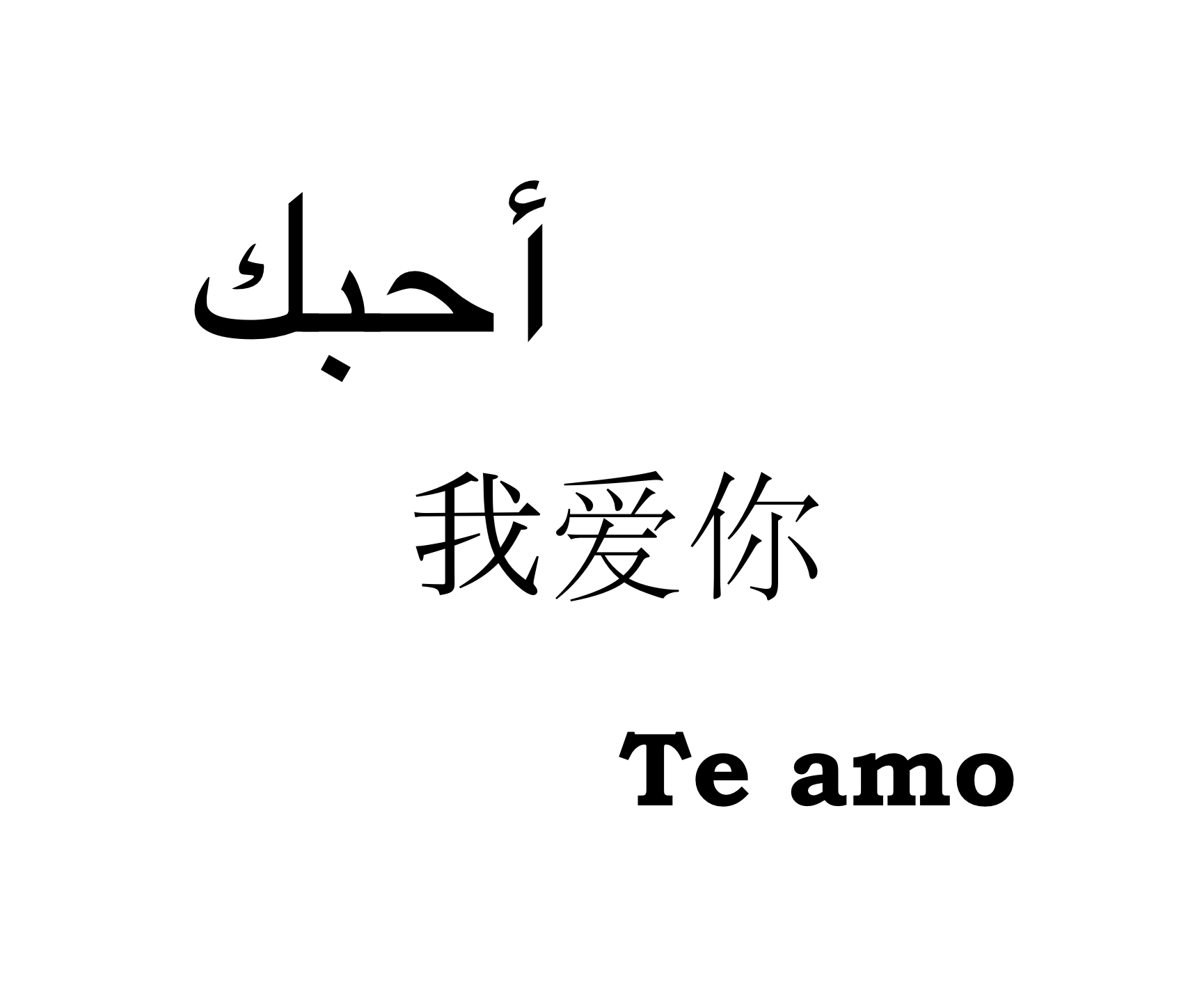How to Say I Love You in Arabic

Learning how to say “I love you” in Arabic opens a world of possibilities for connection and understanding in one of the richest languages on Earth. The phrase holds deep significance and can be expressed in various ways, each carrying its own nuances and cultural context. In this article, we will explore different expressions of love in Arabic, delve into the subtleties of romantic language within Arab cultures, and provide insights into the beauty behind these words.
Understanding the Phrase “I Love You” in Arabic

To fully appreciate how to say “I love you” in Arabic, it helps to understand the cultural nuances and emotional depth associated with love in Arab societies.
The Simplicity of “Ana behibek”
The most common way to express love in Arabic is by saying “Ana behibek” (أنا بحبك). This phrase is straightforward yet carries profound emotion.
When uttered, the phrase translates directly to “I love you.” However, here is where things get interesting: the word “behbek” changes based on the gender of the person being addressed. If you are speaking to a male, you would say “Ana behhibak” (أنا بحبك), while addressing a female requires the use of “Ana behibik” (أنا بحبك). This inclusion of gender reflects the rich diversity of human experience and interaction in Arabic-speaking cultures.
The Emotional Weight Behind the Words
Saying “I love you” is not merely a transactional exchange in Arabic; it’s an expression of deep affection that often carries significant emotional weight. Love in Arab culture is often seen as a lifelong commitment, intertwining familial bonds and social expectations. Therefore, when someone says “Ana behibek,” they are not just sharing a romantic sentiment but also affirming a connection that can have far-reaching implications in terms of social relationships.
Moreover, words hold power in Arabic literature, poetry, and music, illustrating the multifaceted nature of love. Renowned poets like Nizar Qabbani have woven intricate tales of love that resonate deeply with people across generations. Thus, when learning how to say “I love you” in Arabic, one must appreciate this deeper layer of meaning that enriches its expression.
Variations of Expressing Love
While “Ana behibek” is undoubtedly the most popular phrase, there are several other ways to articulate love in Arabic that cater to varying contexts and emotions. For instance, you might encounter phrases like “Ana omri lak” (أنا عمري لك), which means “My life is for you,” showcasing devotion beyond mere romantic love.
These variations allow individuals to convey different shades of affection, whether it’s passion, companionship, or familial love. Such linguistic flexibility reflects the nuanced understanding of relationships within Arab cultures, emphasizing the importance of recognizing the unique dynamics present in every relationship.
Romantic Expressions in Arabic Culture

Romantic expressions in Arabic culture extend far beyond merely saying “I love you.” There exists a rich tapestry of sayings, proverbs, and poetic forms that encapsulate the essence of love and romance in daily life.
Traditional Love Poetry
Throughout history, Arabic literature has been filled with passionate love poetry. From the verses of medieval poets to contemporary lyrical compositions, the theme of love remains central.
Poets such as Al-Mutanabbi and Ibn Zaydun articulated their feelings through beautifully crafted verses. Their poems often depict not only romantic love but also longing, heartbreak, and the complexities of relationships. Recognizing these literary traditions can significantly enhance your understanding of what it means to express love in Arabic.
In modern times, love songs continue to play a pivotal role in everyday life. Artists like Fairouz and Amr Diab have created timeless melodies that evoke emotions related to love, loss, and desire. Listening to these songs can provide a cultural frame of reference for understanding how love is expressed in Arabic-speaking regions.
Cultural Variations in Expressing Love
Arabic-speaking countries encompass diverse cultures, and expressions of love can vary significantly from one region to another. In Egypt, for example, couples may use playful banter as a form of flirting, while in the Gulf countries, more formal expressions of affection might prevail.
Furthermore, local dialects can influence how love is communicated. While Standard Arabic is widely understood, many people prefer using their regional dialects in informal settings. Understanding these nuances can enrich your interactions and enhance your ability to communicate effectively within different cultural contexts.
Expressions of Love in Everyday Life
Love isn’t confined to just grand declarations. In Arab culture, small acts of kindness and thoughtfulness often speak volumes about one’s feelings. Offering someone a cup of coffee, preparing their favorite meal, or simply asking about their day can serve as meaningful gestures that convey deep affection.
Additional non-verbal communication plays a crucial role too. A gentle touch or lingering gaze can express sentiments that words sometimes cannot capture. This interconnectedness of verbal and non-verbal cues illustrates that love transcends mere language; it encompasses shared experiences, gestures, and mutual respect.
Globalization and the Evolution of Love Language

As globalization continues to shape our world, the way people express love has also evolved. In many cases, traditional expressions may blend with modern influences, giving rise to new ways of communicating affection.
Influence of Western Culture
The infusion of Western ideals into Arab societies has led to shifts in interpersonal relationships and expressions of love. The quintessential phrases borrowed from English, such as “I love you,” coexist alongside traditional Arabic expressions.
Young Arabs today often find themselves navigating between cultural expectations and contemporary values. This duality creates a rich tapestry of identities, where one can appreciate both the romanticism of classic love poetry and the directness of modern expressions.
Rise of Technology in Love Expressions

Advancements in technology have changed the landscape of romantic communication, especially among younger generations. Text messaging, social media, and dating apps offer new avenues for expressing love, sometimes even enabling long-distance relationships.
Emoticons and GIFs have found their way into romantic exchanges, adding layers of meaning and immediacy to conversations. However, while technology facilitates communication, it can also lead to misunderstandings if cultural nuances aren’t considered.
Navigating these modern channels while remaining respectful of traditional expressions can create an engaging blend that resonates well with contemporary audiences.
New-age Expressions of Love
With the evolution of global cultures, new-age expressions of love are emerging. Phrases like “I am crazy about you” or “You mean the world to me” symbolize a shift toward more casual yet significant acknowledgments of affection.
This evolution reflects 21st-century relationships—more fluid, experimental, and diverse. The discourse surrounding love continues to expand, inviting creative approaches to expressing feelings that resonate with individual experiences.
FAQs

What is the literal translation of “I love you” in Arabic?
The literal translation of “I love you” in Arabic is “Ana behibek” (أنا بحبك) for a female and “Ana behhibak” (أنا بحبك) for a male.
Are there different ways to express love in Arabic?
Yes, aside from “Ana behibek,” Arabic speakers may use phrases like “Ana omri lak” (My life is for you) or even poetic expressions that convey deep affection depending on the context.
Is the expression of love different in various Arab countries?
Absolutely! Expressions of love can vary greatly among different Arab nations. Cultural practices, dialects, and local customs all contribute to how love is expressed.
Can I use English phrases of love when speaking Arabic?
Using English phrases may be acceptable in certain contexts, especially among younger generations who are influenced by Western culture. However, it’s advisable to complement them with traditional Arabic expressions for better resonance.
How important is love in Arab culture?
Love plays a significant role in Arab culture, as it encompasses family ties, social connections, and romantic relationships. It is often viewed as a profound commitment that extends beyond mere words.
Video
Conclusion
Understanding how to say I love you in Arabic goes far beyond the literal translation; it offers insight into a rich cultural heritage filled with diverse expressions of affection and devotion. Love poetry, cultural variations, and modern adaptations collectively paint a beautiful picture of how love is communicated within Arabic-speaking communities.
As you explore the myriad ways to express love in Arabic, remember that the depth of feeling behind the words is what truly makes them powerful. Whether through poetry, everyday gestures, or heartfelt conversations, the essence of love in Arabic culture is alive and thriving, waiting to be discovered and cherished. By engaging with the language and its cultural nuances, you not only learn to articulate your feelings but also connect deeply with the emotion and heart behind those words.







